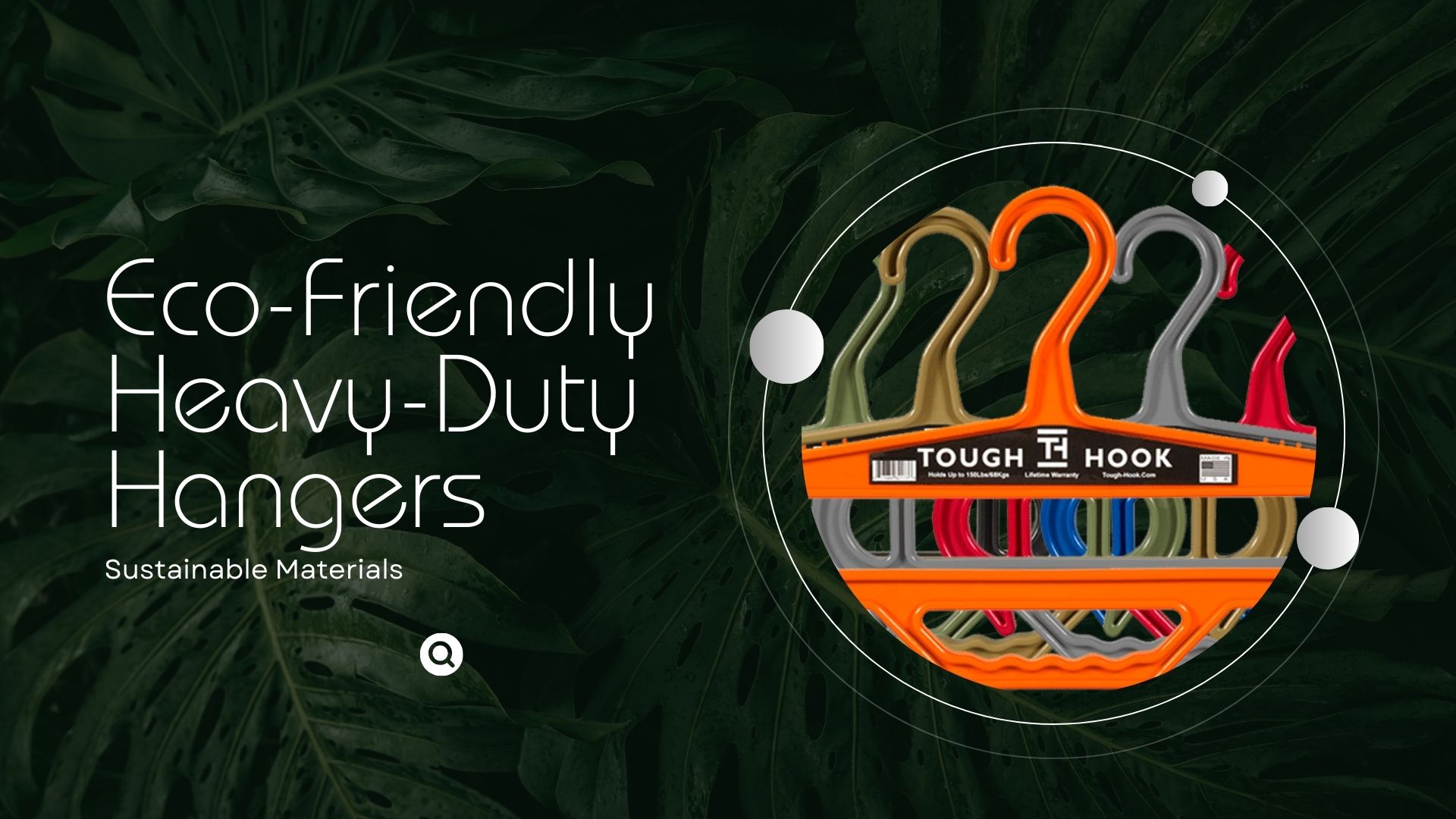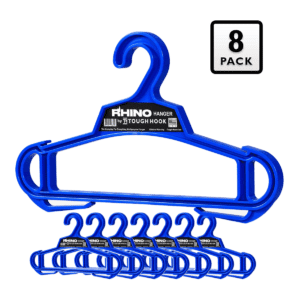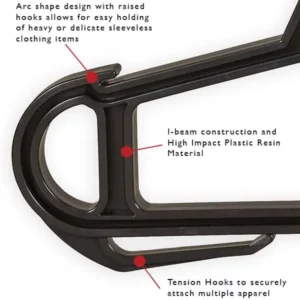Our closets, often overflowing with beloved garments, tend to be overlooked when considering eco-friendly practices in the home. Yet, the seemingly simple act of hanging clothes can have a surprising environmental impact. Traditional plastic hangers, while ubiquitous, are frequently derived from virgin plastics, contributing to a growing landfill crisis and requiring significant energy expenditure during production.
Fortunately, a shift is underway, with eco-conscious consumers demanding sustainable alternatives. This article delves into the world of eco-friendly heavy-duty hangers, exploring the environmental concerns surrounding conventional hangers and highlighting the benefits of opting for sustainable solutions.
The Problem with Traditional Plastic Hangers
Plastic hangers, for all their convenience, present a multitude of environmental issues. It is estimated that billions are produced annually, a significant portion of which are crafted from virgin plastics. Virgin plastics are derived from fossil fuels, a non-renewable resource, and their production necessitates substantial energy consumption. This dependence on fossil fuels contributes to greenhouse gas emissions, accelerating climate change.
Furthermore, the disposal of traditional plastic hangers often leads to landfills, where they can take centuries to decompose. These overflowing landfills not only occupy valuable space but also leach harmful chemicals into the surrounding environment, potentially contaminating soil and waterways.
The environmental impact extends beyond resource depletion and waste generation. Certain types of plastics used in hanger production can release harmful chemicals, raising health concerns. These chemicals may pose a risk to human health when inhaled or absorbed through the skin.
Why Choose Eco-Friendly Heavy-Duty Hangers?
Thankfully, a growing selection of eco-friendly heavy-duty hangers offers a sustainable alternative for consumers seeking to minimize their environmental footprint. These hangers are crafted from materials that boast a lower environmental impact throughout their lifecycle, from production to disposal.
One key benefit of eco-friendly heavy-duty hangers lies in the use of recycled materials. By utilizing pre-existing plastic waste, such as post-consumer or industrial scraps, the production of these hangers reduces demand for virgin plastics. This translates to a decrease in reliance on fossil fuels and the associated energy consumption during the manufacturing process.
Another advantage of eco-friendly hangers is their composition from materials with a demonstrably faster biodegradation rate compared to traditional plastics. While the exact timeframe for biodegradation varies depending on the specific material, certain eco-friendly options can break down significantly faster in controlled composting environments, lessening their long-term presence in landfills.
The production of eco-friendly heavy-duty hangers often requires less energy compared to conventional plastic hangers. This is due, in part, to the utilization of recycled materials that have already undergone processing. The reduced energy consumption during manufacturing translates to a lower carbon footprint for the product.
Several eco-friendly hanger options are crafted from materials that are considered to be less harmful to human health compared to some traditional plastics. This can be particularly beneficial for individuals with sensitivities or concerns about chemical exposure.
Introducing Tough Hook: Sustainable Strength
Here at Tough Hook, we are proud to introduce our line of eco-friendly heavy-duty hangers. Crafted from Advanced High Impact Polypropylene Plastic (AHIPP), Tough Hook hangers offer exceptional durability and support for even your heaviest garments.
AHIPP is a recyclable and reusable plastic that boasts several environmental advantages. It is produced with a lower carbon footprint compared to many other types of plastic, making it a more sustainable choice. Additionally, AHIPP exhibits a demonstrably faster biodegradation rate than traditional plastics when disposed of in controlled composting facilities.
Tough Hook hangers are not only good for the environment; we have it designed to withstand the demands of everyday use. Its robust construction ensures your clothes remain securely hung, preventing unwanted wrinkles or damage. The smooth, non-slip surface of Tough Hook hangers prevents garments from slipping off, keeping your closet organized and frustration-free.
Choosing the Right Eco-Friendly Hanger
With a growing selection of eco-friendly hanger options available, selecting the ideal choice for your needs can feel overwhelming. Here are some key factors to consider when making your decision:
- Material: Explore the materials used in the hanger’s construction. Opt for hangers crafted from recycled materials or those that demonstrate a faster biodegradation rate.
- Durability: Consider the weight of the garments you intend to hang. Heavy-duty options, like Tough Hook hangers made from AHIPP, are well-suited for coats, jackets, and other heavier items.
- Functionality: Think about the features that best suit your needs. Features like notches for straps or clips for skirts can be helpful for specific garments.
- Sustainability Certifications: Look for hangers that carry certifications from reputable sustainability organizations. These certifications offer assurances that the product adheres to environmentally responsible practices.
Beyond Hangers: Sustainable Closet Practices
While eco-friendly heavy-duty hangers represent a significant step towards a more sustainable closet, there’s more you can do! Consider these additional tips:
- Invest in high-quality, timeless pieces: Fast fashion, characterized by trendy clothing produced cheaply and quickly, contributes significantly to clothing waste. Opt for classic styles and well-made garments that will last for years.
- Embrace pre-loved clothing: Give new life to pre-owned clothing by shopping at thrift stores or consignment shops. This extends the lifespan of garments and reduces demand for new clothing production.
- Learn basic clothing repairs: Minor tears or loose buttons don’t necessitate discarding garments. Learning basic sewing skills allows you to mend clothes and keep them wearable for longer.
- Organize and declutter regularly: A well-organized closet allows you to see all your clothes, preventing neglected items from languishing unworn. Regularly declutter by donating or selling clothes you no longer wear.
- Wash clothes less frequently: Overwashing garments shortens their lifespan and consumes unnecessary water and energy. Spot cleaning and airing out clothes can often suffice between washes.
By incorporating these practices alongside eco-friendly hangers, you can create a more sustainable closet that minimizes your environmental impact while maximizing your style. Join the movement towards a greener wardrobe, and together we can hang in there for the planet!






